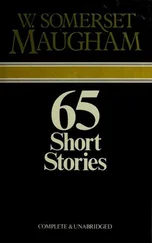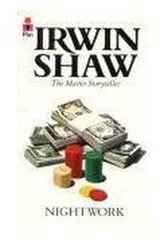Irwin Shaw - Short Stories - Five Decades
Здесь есть возможность читать онлайн «Irwin Shaw - Short Stories - Five Decades» весь текст электронной книги совершенно бесплатно (целиком полную версию без сокращений). В некоторых случаях можно слушать аудио, скачать через торрент в формате fb2 и присутствует краткое содержание. Год выпуска: 2013, Издательство: Open Road Media, Жанр: Современная проза, на английском языке. Описание произведения, (предисловие) а так же отзывы посетителей доступны на портале библиотеки ЛибКат.
- Название:Short Stories: Five Decades
- Автор:
- Издательство:Open Road Media
- Жанр:
- Год:2013
- ISBN:нет данных
- Рейтинг книги:5 / 5. Голосов: 1
-
Избранное:Добавить в избранное
- Отзывы:
-
Ваша оценка:
- 100
- 1
- 2
- 3
- 4
- 5
Short Stories: Five Decades: краткое содержание, описание и аннотация
Предлагаем к чтению аннотацию, описание, краткое содержание или предисловие (зависит от того, что написал сам автор книги «Short Stories: Five Decades»). Если вы не нашли необходимую информацию о книге — напишите в комментариях, мы постараемся отыскать её.
Short Stories: Five Decades — читать онлайн бесплатно полную книгу (весь текст) целиком
Ниже представлен текст книги, разбитый по страницам. Система сохранения места последней прочитанной страницы, позволяет с удобством читать онлайн бесплатно книгу «Short Stories: Five Decades», без необходимости каждый раз заново искать на чём Вы остановились. Поставьте закладку, и сможете в любой момент перейти на страницу, на которой закончили чтение.
Интервал:
Закладка:
They were on the tennis court at eleven o’clock the next morning, Willard and Martin playing against Bowman and a man called Spencer, who had a big service but nothing much beyond that. Bowman turned out to be agile and crafty and played with a good-humored enjoyment of the game, whether he was winning or losing.
Martin and Willard had brought over the two boys and they played at the edge of the court with the Bowman’s three children, two boys and a girl, ranging in age from six to eleven, all three of them rather pale and subdued, too polite and reserved, Martin thought, for children their age.
After the second set, Mrs. Bowman, looking surprisingly formal in a dark cotton dress with a white collar under her heavy bun of rich, dark blond hair, came out of the house with a tray with orangeade in a pitcher and some glasses. She stayed for some time, watching the game, and while she was there Martin made more errors than usual, because he kept glancing over at her, studying her, trying, almost unconsciously, to catch an exchange of looks between her and her husband, a sign, an indication.… But she sat there quietly, not saying anything, not applauding the good shots or commenting on the bad ones. She seemed to pay no attention, either, to the five children playing around her, and after a while, she got up, in the middle of a point, and wandered back toward the house, tall, curiously elegant, unattached, a silent and decorative figure on the sweeping green lawn which led up to the big, white, pleasant house.
The wind sprang up during the third set and made lobbing and overheads difficult and they decided to quit. They all shook hands and went over to the side of the court and drank their orangeade. The two Willard boys climbed all over their father, clamoring for a drink, but the Bowman children stood off at a little distance, silently, watching their father, and only coming over when he had poured a glass of the orangeade for each of them and called to them to come and drink it. They said, “Thank you,” in hushed voices and retired again to sip their drinks.
“It’s too bad you won’t be here all summer,” Bowman said to Martin, as they sat at the edge of the court with their drinks. “You’d raise the level of the tennis around here considerably. You might even get your poor old brother-in-law up to the net once in a while.” He chuckled good-naturedly, winking at Martin and wiping the sweat off his forehead with a towel.
“I have to be in Paris by the end of the week,” Martin said, watching Bowman’s face for a change of expression, a flicker of relief.
But Bowman merely kept wiping his face with the towel, placidly, smiling. “We’ll miss you,” he said, “especially on weekends. But, anyway, you’re coming to dinner this evening, aren’t you?”
“He’s set on catching the six o’clock to New York,” Willard said.
“Oh, that’s silly,” said Bowman. “We’re having a barbecue in the garden. If it doesn’t rain. Stay another night. New York is dead on Sunday, anyway.” He sounded friendly, hospitable.
“Well,” said Martin, deciding suddenly, “maybe I will.”
“That’s the boy,” Bowman said heartily, as Willard looked at Martin, mildly surprised. “We’ll try to make it worth your while. I’ll warn the dull country folk they have to put their best foot forward. All right, children,” he called. “Ready for lunch.”
On the way home, Willard looked over from the wheel. “What made you change your mind, Martin?” he asked. “Mrs. Bowman?”
“She is beautiful, isn’t she?” Martin said, going along with his brother-in-law.
“Every one of the local Don Juan’s has tried his luck,” Willard said, grinning. “Zero.”
“Daddy,” asked the older boy from the back seat, “what’s a Don Juan?”
“He was a man who lived a long time ago,” Willard said briskly.
During the afternoon, Martin asked as many questions as he dared about the Bowmans. He found out that they had been married fourteen years, that they were rich (Mrs. Bowman’s family owned cotton mills and Bowman himself ran the New York office), that they gave many parties, that they were liked by everybody, that the Willards saw them two or three times a week, that Bowman, unlike some of the other husbands of the community, never seemed the least bit interested in other women.
While he was dressing for the evening, Martin felt himself growing more and more baffled. When he had first seen Bowman at the party the night before, Martin had been sure Bowman was the man who had stared up at him from outside the living-room window, and when he had first seen him that morning on the tennis court the certainty had grown. But the house, the wife, the children, the things that Willard and Linda had said about Bowman, above all, the candid and relaxed manner in which Bowman had greeted him and pressed him to come to dinner, the transparent good humor, with no hint of any shadow beneath it, all conspired to shake Martin. If it really had been Bowman, he must surely have recognized Martin and been almost certain that Martin had recognized him. After all, they had stared at each other, both of them in a strong light, for a full ten seconds, at a distance of five feet. And if it had been Bowman, it would have been so easy for him to have called off the tennis game, to have telephoned and said he had a hangover, or there was too much wind, or with a dozen other excuses.
“Oh, hell,” Martin said to himself, knotting his tie in front of the mirror, knowing he had to do something and do it that night, but feeling rushed, isolated, unsure of himself, on the verge of acts which might have grotesque, perhaps tragic consequences. When he went downstairs, Willard was alone in the living room reading the Sunday papers and Martin was tempted to tell him everything and get some of the load of responsibility off his own shoulders. But just as he was about to talk, Linda came in, ready for the party, and he had to keep quiet. He went out to the car with them, still carrying the whole thing himself, wishing he had two weeks more, a month, to observe, to move carefully, to act discreetly and with decision. But he didn’t have two weeks. He had one night. For the first time since he had decided to quit his job in California he bitterly regretted that he was going to France.
* * *
The party was a big one, with more than twenty people. The night was warm enough and they were all outside on the lawn, which was set with tables and hurricane lamps in which candles burned, throwing a soft, generous light on the guests grouped around them, while two waiters the Bowmans had hired for the occasion hurried back and forth from the big barbecue at the end of the garden at which Bowman, dressed in a chef’s apron and pink with the heat of the fire, was broiling steaks.
Martin sat at the same table with Mrs. Bowman, between her and a pretty young woman by the name of Winters who kept flirting with a man at the next table. In the middle of the meal, Martin was surprised to learn that the man Mrs. Winters was flirting with was her own husband. Mrs. Bowman talked to Martin about France, where she had been, as a girl, before the war, and once again, some five years before. It turned out that she was interested in tapestries and told Martin he must go to Bayeux to see the great ones in the cathedral there and to the Museum of Modern Art in Paris, where there were examples of some of the work that contemporary artists had done in the same field. Her voice was soft, gentle, rather flat and uninflected and you felt that even on other, more intimate subjects, she probably would speak in the same melodious, murmuring, impersonal, changeless tone, like a song in a minor key, restricted arbitrarily to one low octave.
“Do you plan to go to France again, soon?” Martin asked.
Читать дальшеИнтервал:
Закладка:
Похожие книги на «Short Stories: Five Decades»
Представляем Вашему вниманию похожие книги на «Short Stories: Five Decades» списком для выбора. Мы отобрали схожую по названию и смыслу литературу в надежде предоставить читателям больше вариантов отыскать новые, интересные, ещё непрочитанные произведения.
Обсуждение, отзывы о книге «Short Stories: Five Decades» и просто собственные мнения читателей. Оставьте ваши комментарии, напишите, что Вы думаете о произведении, его смысле или главных героях. Укажите что конкретно понравилось, а что нет, и почему Вы так считаете.











